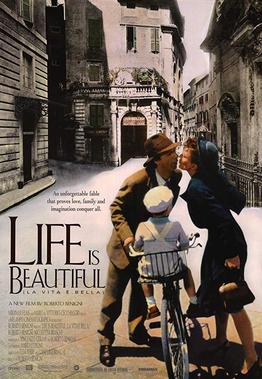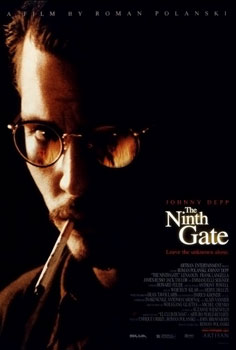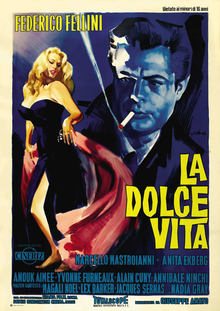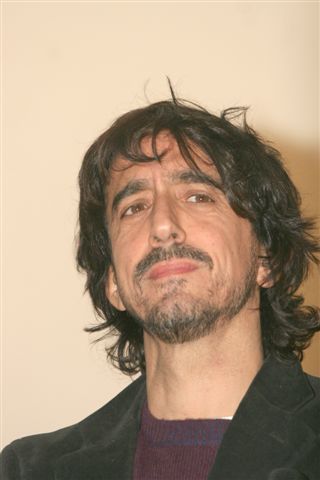
James Marshall "Jimi" Hendrix was an American guitarist, songwriter and singer. He is widely regarded as the greatest guitarist in the history of popular music and one of the most influential musicians of the 20th century. The Rock and Roll Hall of Fame describes him as "arguably the greatest instrumentalist in the history of rock music."

Raymond Roman Thierry Polański is a French and Polish film director, producer, screenwriter, actor and convicted sex offender. He is the recipient of numerous accolades, including an Academy Award, two British Academy Film Awards, ten César Awards, two Golden Globe Awards, as well as the Golden Bear and a Palme d'Or.

Christophe Guy Denis "Christopher" Lambert is a French-American actor, producer, and writer. He started his career playing supporting parts in several French films, and became internationally famous for portraying Tarzan in Greystoke: The Legend of Tarzan, Lord of the Apes (1984). For his performance in the film Subway (1985), he received the César Award for Best Actor. His other notable acting roles include Connor MacLeod in the adventure-fantasy film Highlander (1986) and the subsequent franchise of the same name, Raiden in Mortal Kombat (1995), Methodius in Ghost Rider: Spirit of Vengeance (2011), and Arne Seslum in Hail, Caesar! (2016). He also served as executive producer for Nine Months (1995).

Life Is Beautiful is a 1997 Italian comedy-drama film directed by and starring Roberto Benigni, who co-wrote the film with Vincenzo Cerami. Benigni plays Guido Orefice, a Jewish Italian bookshop owner, who employs his imagination to shield his son from the horrors of internment in a Nazi concentration camp. The film was partially inspired by the book In the End, I Beat Hitler by Rubino Romeo Salmonì and by Benigni's father, who spent two years in the Bergen-Belsen concentration camp during World War II.

Takeshi Kitano, also known as Beat Takeshi in Japan, is a Japanese comedian, actor, and filmmaker. While he is known primarily as a comedian and TV host in his native Japan, he is better known abroad for his work as a filmmaker and actor as well as TV host.

Dweezil Zappa is an American rock guitarist and occasional actor. He is the son of musical composer and performer Frank Zappa. Exposed to the music industry from an early age, Zappa developed a strong affinity for playing the guitar and producing music. Able to learn directly from guitarists such as Steve Vai and Eddie Van Halen, Zappa released his first single at the age of 12.

Neil Patrick Jordan is an Irish film director, screenwriter, novelist and short-story writer. He first achieved recognition for his short story collection, Night in Tunisia, which won the Guardian Fiction Prize in 1979. After a stint working at RTÉ, he made his directorial debut with the 1982 film Angel.

The Ninth Gate is a 1999 neo-noir horror thriller film directed, produced, and co-written by Roman Polanski. An international co-production between the United States, Portugal, France, and Spain, the film is loosely based upon Arturo Pérez-Reverte's 1993 novel The Club Dumas. The film stars Johnny Depp as a dealer of rare books who is tasked with authenticating a 17th-century book that - if used correctly - can summon the Devil.

The Talented Mr. Ripley is a 1999 American psychological thriller film written and directed by Anthony Minghella, based on Patricia Highsmith's 1955 novel. Set in the 1950s, it stars Matt Damon as Tom Ripley, a con artist who is sent from New York City to Italy to convince Dickie Greenleaf, a rich and spoiled playboy, to return home – however, after failing, Ripley takes extreme measures. Jude Law, Gwyneth Paltrow, Cate Blanchett, and Philip Seymour Hoffman also appear in supporting roles. This film was released forty years after the adaptation that had been made in 1960, Purple Noon by René Clément with Alain Delon, Maurice Ronet and Marie Laforêt.

La dolce vita is a 1960 satirical comedy-drama film directed by Federico Fellini. It was written by Fellini, Ennio Flaiano, Tullio Pinelli, and Brunello Rondi. The film stars Marcello Mastroianni as Marcello Rubini, a tabloid journalist who, over seven days and nights, journeys through the "sweet life" of Rome in a fruitless search for love and happiness. The screenplay can be divided into a prologue, seven major episodes interrupted by an intermezzo, and an epilogue, according to the most common interpretation.

The Deauville American Film Festival is a yearly film festival devoted to American cinema, which has taken place since 1975 in Deauville, France.
Michael Anthony Claudio Wincott is a Canadian actor. His deep, raspy voice has often led to his being cast in villainous roles.

Mathieu Demy is a French actor, film director, and producer.

Benoît Magimel is a French actor. He was 14 when he appeared in his first film, and has starred in a variety of roles in French cinema. At age 16, Magimel left school to pursue acting as a career. In 2001, he won the Best Actor award at the Cannes Film Festival for his role in Michael Haneke's The Piano Teacher. He also starred in Claude Chabrol's La Demoiselle d'honneur.

Giovanna Mezzogiorno is an Italian theatre and film actress.

Gabriele Salvatores is an Italian Academy Award-winning film director and screenwriter.

Sergio Rubini is an Italian actor, film director and screenwriter.

Charlie Strapp and Froggy Ball Flying High is a 1991 Swedish animated feature film directed by Jan Gissberg after an original script by Thomas Funck, using Funck's already well-established characters. It follows a shorter film made by the same team in 1987, Kalle Stropp och Grodan Boll räddar Hönan. This is the first time since before 1954 where a Kalle Stropp production features voice acting by others than only Funck himself, only with the exception of children that had participated in other productions as well.

Rita Rusić, also known as Rita Cecchi Gori, is a Croatian-born Italian producer, actress and singer. Rusić's career began as an actress with a major role in the 1982 film Attila flagello di Dio. She was eventually moved into the film industry, with Il pentito in 1982. Later that year she also began filming Joan Lui - Ma un giorno nel paese arrivo io di lunedì.

Five Moons Square, also known as Five Moons Plaza and Piazza of the Five Moons, is a 2003 political thriller film written and directed by Renzo Martinelli, who had also directed Porzûs (1997) and Vajont (2001). It is inspired by Italian politician Aldo Moro's kidnapping and murder by the Red Brigades (BR) terrorist group; the film presents a possible reconstruction of this story within a fictive conspiracy theory.



















